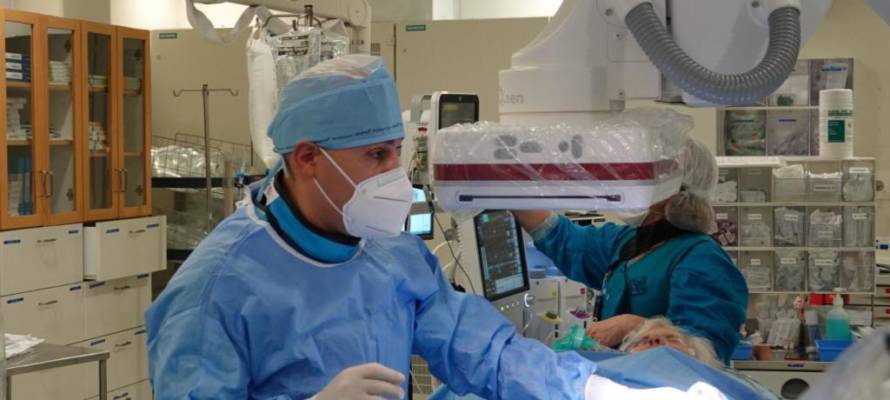Annette Caron, 96, who underwent the first surgery of its kind in the world, was diagnosed with a heart valve blockage that caused a deterioration in her ability to function and endangered her life.
By TPS
The catheterization unit at the Shaare Zedek Medical Center in Jerusalem marked a historic moment in the field of cardiology when its doctors performed a heart operation through catheterization, and not open-heart surgery.
Annette Caron, 96, who underwent the first surgery of its kind in the world, was diagnosed with a heart valve blockage that caused a deterioration in her ability to function and endangered her life.
Many experts refused to operate because of her age, and catheterization was not an option without this new development.
“I got to a point where activities I could have easily performed in the past became more and more difficult. I consulted several doctors in the country, but all had the same answer, better stay with the block and not take the risk,” she said.
The operation was performed using a new Israeli development, a tiny knife a few millimeters in size that is inserted into through a catheter and allows surgery to be performed without stopping the heart’s activity.
The knife, the ShortCut device, was developed by Shaare Zedek’s heart specialists, led by Dr. Danny Dvir, director of the hospital’s cardiac catheterization department, who specializes in unique catheterization methods, in collaboration with the Israeli company Pi-Cardia.
ShortCut is the world’s first dedicated device designed to split the leaflets of a pre-existing valve to enable safe Transcatheter Aortic Valve Replacement (TAVR) in patients at risk for coronary obstruction or compromised coronary access.
“We had to think about how to cut the leaf that could cause a complication and we developed a small folding knife a few millimeters in size that can be inserted into the heart through the blood vessels and perform the surgery with the utmost care,” Dvir explained.
“The new development completes a range of unique solutions in the field of cardiac catheterization and promotes it to an era in which all possibilities are open,” he added.
Annette was released home 48 hours after the end of the surgery and will be able to return to full activity soon.
Annette shared that she started working as a nurse in her 30s, and “the division in medical disciplines was very basic then. Today it is possible to perform complex operations without cutting, it’s just amazing!”
“Thanks to this innovative treatment I will be able to perform the activities I performed again like swimming and light walking. I feel wonderful,” she added.
